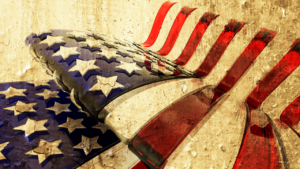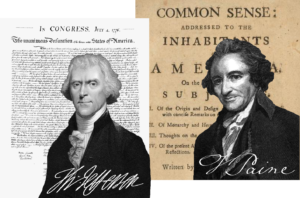Readers of this blog live all over the globe. For those living outside of the United States, you may not be aware that today America celebrates the day its founding fathers signed the Declaration of Independence, which declares: “We hold these truths to be self-evident, that all men are created equal, that they are endowed by their Creator with certain unalienable Rights, that among these are Life, Liberty and the pursuit of Happiness.” In these troubled times, we would do well to remind ourselves of the ideals that motivated the founding fathers and have continued to inspire others to offer their lives in their defense.
Walt Whitman (1819–1892) was one of America’s early poets and essayists. He penned the following on freedom:
“It is not only true that most people entirely misunderstand Freedom, but I sometimes think I have not yet met one person who rightly understands it. The whole Universe is absolute Law. Freedom only opens entire activity and license under the law. To the degraded or undevelopt—and even to too many others—the thought of freedom is a thought of escaping from law—which, of course, is impossible.”
As I have noted before, security and prosperity cannot be separated. Security, in large measure, is based on the rule of law. The rule of law, which inspires trust, is also the foundation of prosperity. Whitman continues:
“More precious than all worldly riches is Freedom—freedom from the painful constipation and poor narrowness of ecclesiasticism—freedom in manners, habiliments, furniture, from the silliness and tyranny of local fashions—entire freedom from party rings and mere conventions in Politics—and better than all, a general freedom of One’s-Self from the tyrannic domination of vices, habits, appetites, under which nearly every man of us, (often the greatest brawler for freedom,) is enslaved.”
While this sounds a little preachy, Whitman’s point is that we often impinge on true freedom by enslaving ourselves with things that don’t really matter. There have been a number of books written about the pursuit of happiness and most of them conclude that beyond a certain level of wealth (a level well above the poverty line) the accumulation of more wealth does not translate into more happiness. Relationships matter more. Bhutan even measures it success as nation by its happiness index, not its GDP. Whitman concludes:
“Can we attain such enfranchisement—the true Democracy, and the height of it? While we are from birth to death the subjects of irresistible law, enclosing every movement and minute, we yet escape, by a paradox, into true free will. Strange as it may seem, we only attain to freedom by a knowledge of, and implicit obedience to, Law. Great—unspeakably great—is the Will! the free Soul of man! At its greatest, understanding and obeying the laws, it can then, and then only, maintain true liberty. For there is to the highest, that law as absolute as any—more absolute than any—the Law of Liberty. The shallow, as intimated, consider liberty a release from all law, from every constraint. The wise see in it, on the contrary, the potent Law of Laws, namely, the fusion and combination of the conscious will, or partial individual law, with those universal, eternal, unconscious ones, which run through all Time, pervade history, prove immortality, give moral purpose to the entire objective world, and the last dignity to human life.”
The dignity to human life about which Whitman wrote is one of the things that motivates me to look for business opportunities in places like Kurdistan. Dole does not produce either freedom or happiness. Creating good jobs that can support families and undergird an emerging economy is as important an activity as providing security. I encourage you to take time today to honor those who are willing to sacrifice personal comfort and safety to help others seek “Life, Liberty and the pursuit of Happiness.”




